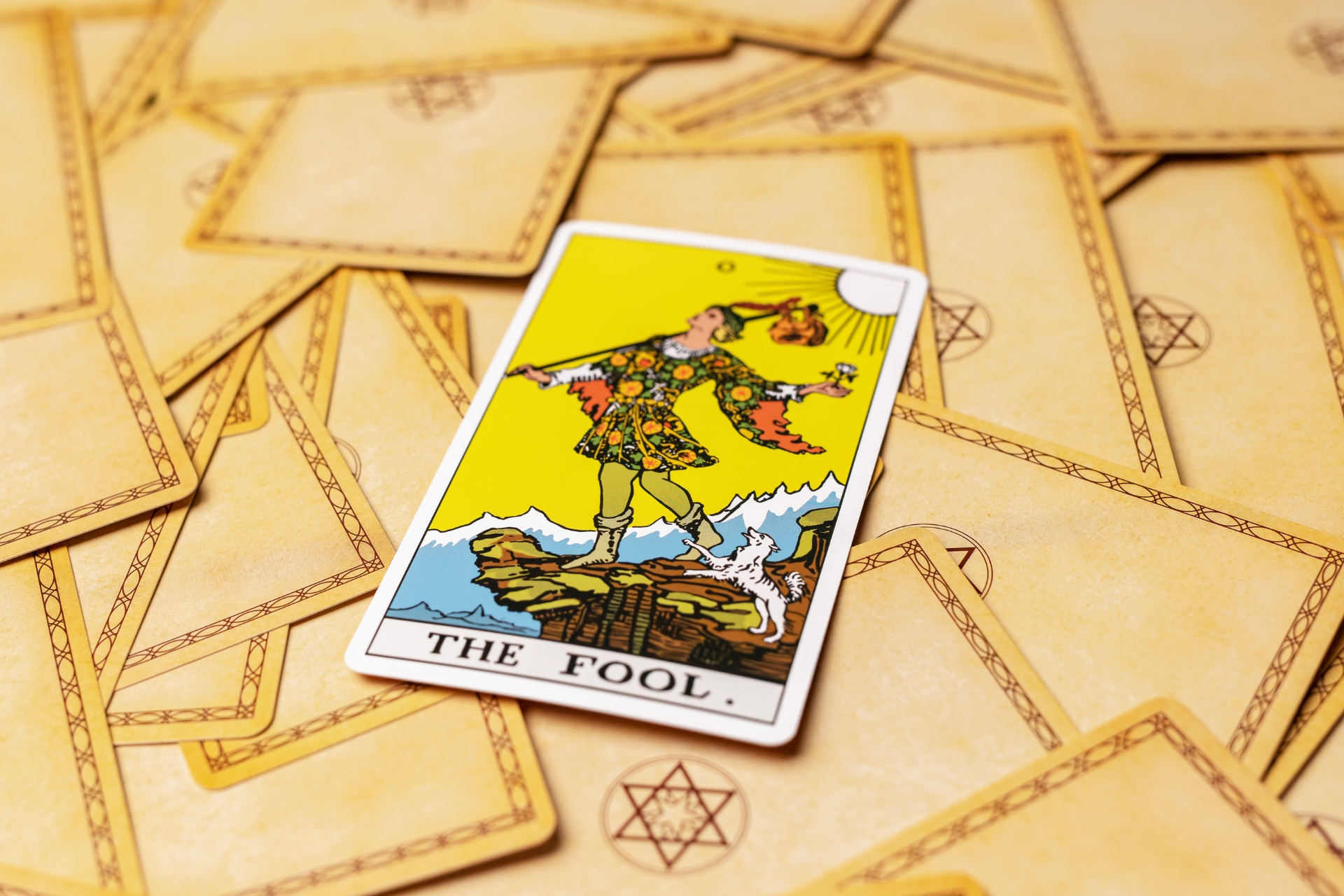by Matthew Williams
Content writer
Powerful, forceful, and direct, Vandana Shiva has been at the forefront of the anti-GMO movement for more than 40 years, proving one person really can make a difference.
Known as the “Gandhi of Grain,” Shiva uses her sharp wit, scientific knowledge, and a healthy dose of compassion to promote traditional farming methods over big agriculture whose practices have turned seeds into intellectual property.
For Shiva, these multinational corporations wield food as a weapon, controlling societies and even armies through the patenting of seed varieties and strict growth methods.
With billions of dollars at stake, the campaign to besmirch Dr. Shiva has been relentless. Despite this, her following and influence grow ever stronger, with many now looking to her wisdom to guide future crop production in light of climate change and the dangers of GMO farming.
To help you learn more about Vandana Shiva and her tireless efforts in reforming agriculture, here are some of her most notable achievements and accolades.
1. Seed slavery
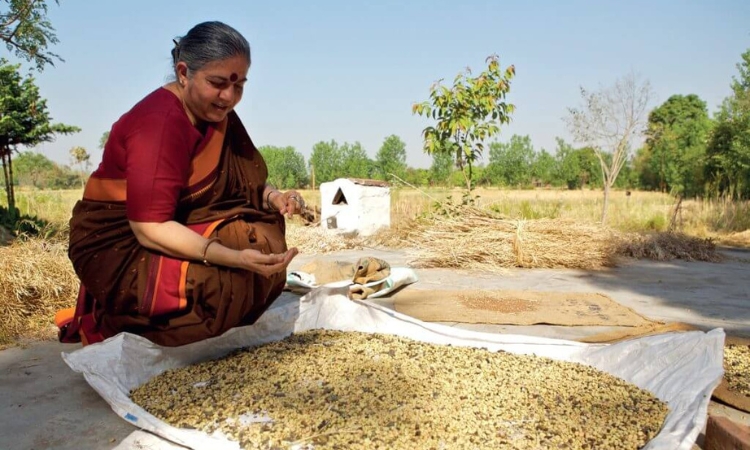
For 10,000 years, humankind has relied on local seeds and the sharing of them to produce better harvests. Through this diversification of seeds, farmers over the millennia have been able to improve the taste of crops, as well as get better yields that can withstand changeable environments.
And it’s this organic method of farming that Shiva believes we must return to after allowing GMO crops to dominate the landscape with promises of feeding the world. For Shiva, such lofty claims are not only untrue but pernicious lies, with GMOs leading to “large-scale destruction of biodiversity and farmer’s livelihoods.”
The source of the problem is what Dr. Shiva calls "seed slavery," where corporations own the supply of seed through genetic engineering patents, creating massive profits through the control of nature and local communities.
In India, where most of Shiva’s work is focused, 270,000 farmers have committed suicide due to the trap of GMO royalties and dependency on multi-national corporations.
Shiva’s biggest fight has been attempting to move away from this system where farmers have to rebuy seeds every year from corporations and expensive, toxic pesticides.
Through her activism and protests, she has sought to make seed patenting illegal. Through her activism, she promotes traditional farming, protecting farmer’s rights to use their own seeds and prevent companies such as Ricetec, based in Texas, USA, from “owning” crops such as basmati rice.
2. Promoting biodiversity through seed banks
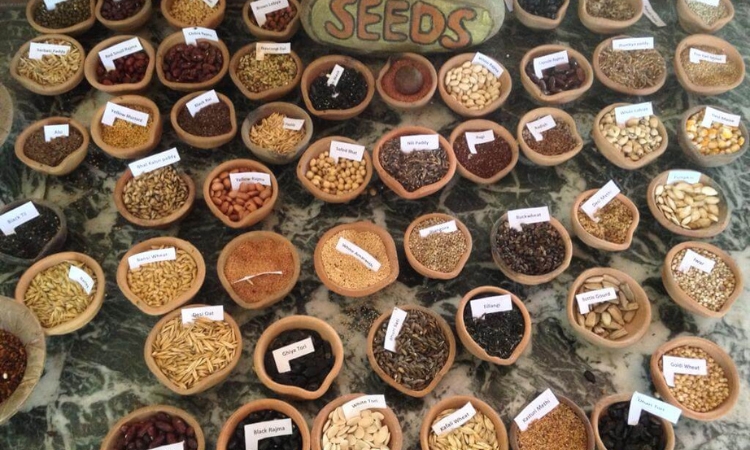
In her fight against patented GMOs, Shiva has established over 50 seed banks throughout India, preserving the traditional, more resilient varieties of food for farmers to grow freely.
Started in 1991, her seed bank organization is called Navdanya and practices the ideals of Vasudhauva Kutumbakam, the belief that all of Earth is one family, with all separations of creed, race, species, and culture being ultimately illusory.
The organization aims to implement “food sovereignty” for farmers through their 54 seed banks in India and training programs. By breaking the dependence on genetically engineered and patented seeds, Shiva has helped over 500,000 farmers to date achieve agricultural independence in India alone.
These seed banks not only provide the means for farmers to support themselves but also provide a more sustainable future by preserving traditional varieties, with many of the patented mono-cultures seen in GMOs unsuitable for the planet’s future.
3. Taking on Monsanto
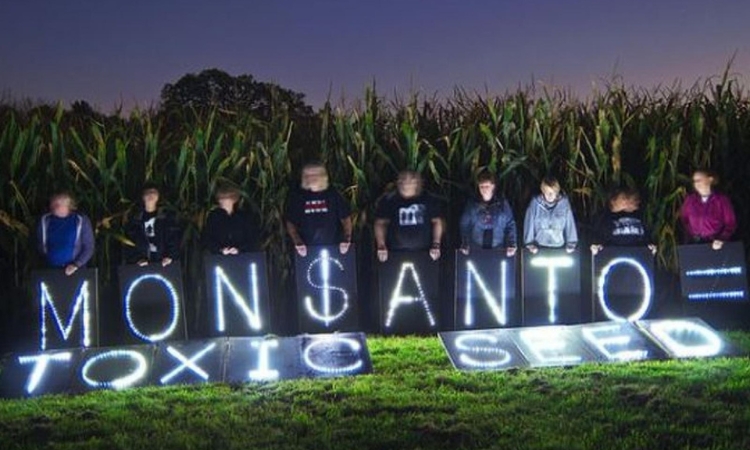
Perhaps her biggest fight to date, Vandana Shiva was a constant thorn in the side of the agricultural giant Monsanto, a GMO pioneer. Despite being around since the turn of the 20th century, Monsanto found international success in the 1970s after developing their herbicide “Roundup” that was later linked to occurrences of cancer.
In the decades up to their merger with Bayer in 2018, Monsanto was responsible for developing the legal framework with the World Trade Organization and U.S. government to transform seeds into intellectual property.
This “food totalitarianism,” Shiva believes, was used by companies like Monsanto to control the lives of billions, giving them unprecedented amounts of power of biodiversity and the lives of local communities.
Shiva was a relentless critic of Monsanto, bringing attention to the corporation’s practice, such as price-gouging farmers for access to seed. These practices and more led to a surge in suicides linked directly to the corporation’s stranglehold on the growing of things like cotton.
Shiva used her platform to publicly condemn Monsanto, which led to the corporation eventually being dissolved and absorbed.
4. Academic and prolific writer
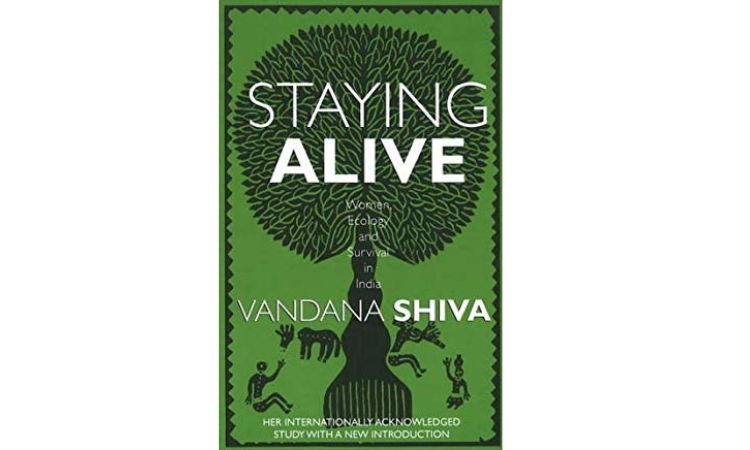
In her war against bio-piracy, Shiva is well equipped to understand the issues at hand, having grown up with a father heavily involved in forest land conservation and her mother a traditional farmer who taught Vandana to love all of nature.
She holds a degree in physics from Panjab University and a Ph.D. in philosophy from the University of Western Ontario. Having both hands-on experiences from growing up in rural India and education in the western world, Shiva used her knowledge and persuasive writing to highlight the issues of globalism and bioeconomics.
Alongside her activism and organizations, Shiva is also known as an influential writer, with her first book, Staying Alive (1988), a feminist novel, illuminating the plight of women in developing nations.
Two years later, she wrote a report for the Food and Agriculture Organization (FAO) with the title Most Farmers in India are Women, going on to write many important papers and over a dozen books, all calling attention to the issues of biopolitics, globalization, and the role of women in agriculture.
5. Gandhian principles and eco-feminism
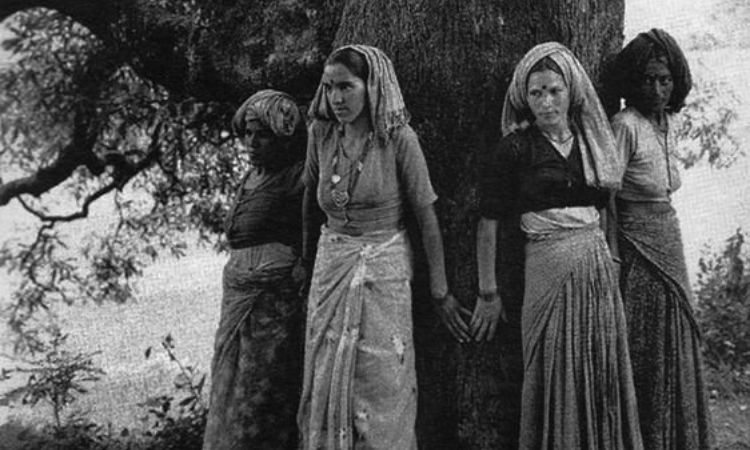
Following in the footsteps of Mohandas Gandhi, Vandana Shiva is a practicer of satyagraha, the non-violent resistance to evil in the world. Through the use of peaceful protests, Shiva and her followers have enacted the Gandhian principles for the sake of ecological preservation and the rights of women.
And Shiva was there at the beginning of the eco-feminist movement, embracing trees in the Himalayan forests with peasant women to prevent further deforestation. Through her involvement with the Chipko movement, Shiva came to learn that an academic understanding of such issues only told part of the story, with local women knowing every nook and cranny of their local ecosystem.
Through Shiva, the eco-feminists of the Chipko movement found a voice who could systematize and elaborate on the issues that were arising. This led to Shiva establishing the Research Foundation for Science, Technology and Natural Resource Policy (RFSTN), an organization devoted to making agriculture sustainable, seeing women playing a vital role in this regeneration of the Earth.
6. Continuing influence & the fight against the 1%
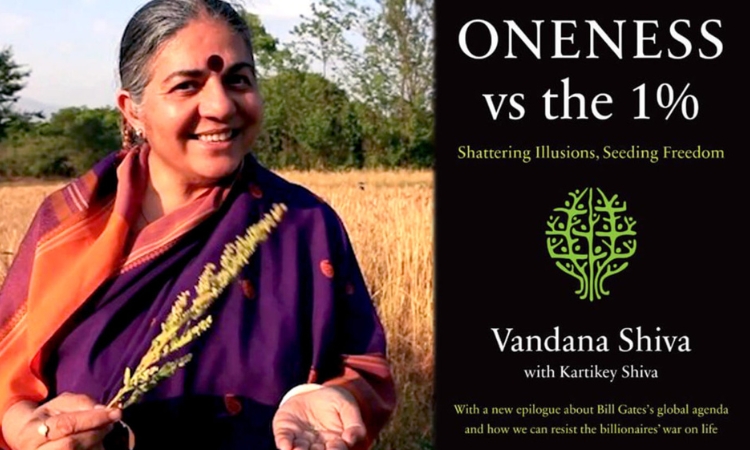
Still proving herself a force of nature, Dr. Shiva’s efforts to reform the agricultural world continue to this day, with her latest target being the financers of GMO deregulation such as Bill Gates.
For Vandana Shiva, the colonisation of lands such as India by the British Empire has simply been replaced by the corporations that now hold farmers in perpetual states of insecurity and fear. Although the mainstream narrative heralding philanthropists such as Gates as saviors of the world, Shiva’s work in India has seen firsthand the disastrous effects of things like synthetic fertilizer is having on the land.
Ever unafraid to speak the truth in the face of massive opposition, Dr. Shiva compares Bill Gates’ foray into the world of agriculture as reminiscent of how Rockefeller helped bring about the Green Revolution in the 50s and 60s. It was this straying from traditional methods of agriculture that led to the breeding of patent-protected seeds.
Shiva’s latest efforts focus on preventing history from repeating itself, thwarting Gates from introducing seed surveillance under the guise of philanthropy.

